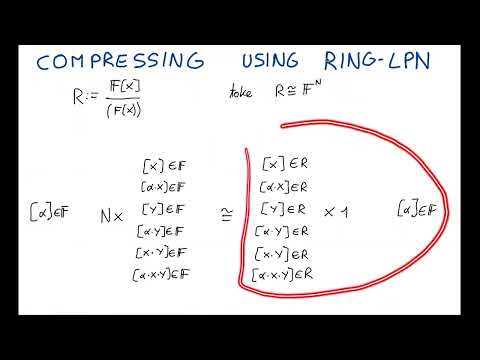CryptoDB
Low-Communication Multiparty Triple Generation for SPDZ from Ring-LPN
| Authors: |
|
|---|---|
| Download: | |
| Conference: | PKC 2022 |
| Abstract: | The SPDZ protocol for multi-party computation relies on a correlated randomness setup consisting of authenticated, multiplication triples. A recent line of work by Boyle et al. (Crypto 2019, Crypto 2020) has investigated the possibility of producing this correlated randomness in a \emph{silent preprocessing} phase, which involves a ``small'' setup protocol with less communication than the total size of the triples being produced. These works do this using a tool called a \emph{pseudorandom correlation generator} (PCG), which allows a large batch of correlated randomness to be compressed into a set of smaller, correlated seeds. However, existing methods for compressing SPDZ triples only apply to the 2-party setting. In this work, we construct a PCG for producing SPDZ triples over large prime fields in the multi-party setting. The security of our PCG is based on the ring-LPN assumption over fields, similar to the work of Boyle et al. (Crypto 2020) in the 2-party setting. We also present a corresponding, actively secure setup protocol, which can be used to generate the PCG seeds and instantiate SPDZ with a silent preprocessing phase. As a building block, which may be of independent interest, we construct a new type of 3-party distributed point function supporting outputs over arbitrary groups (including large prime order), as well as an efficient protocol for setting up our DPF keys with active security. |
Video from PKC 2022
BibTeX
@inproceedings{pkc-2022-31720,
title={Low-Communication Multiparty Triple Generation for SPDZ from Ring-LPN},
publisher={Springer-Verlag},
author={Damiano Abram and Peter Scholl},
year=2022
}

